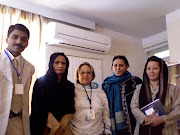In the past few days, the events that have been triggered by the UN sanctions within Pakistan can be considered as significant, as the global view of Pakistan and the terror outfits working from its soil seems to have altered. Four Pakistani militants were added to UN terrorism sanctions list. They were added to a pre-existing list called the 1267 committee of people and firms facing sanctions for ties to Al-Qaida and Taliban. Muhammad Saeed, Zaki-ur-Rehman Lakhvi, Haji Muhammad Ashraf and Mahmoud Mohammad Ahmed Bahaziq, these names have become well known across the globe and so has the outfit Jamaat-ud-dawa. The UN’s action came through after evidence and pressure from America in concern to the 26/11 incident . The sanctions led to the house arrest of the listed terrorists. Reports claimed the sanction to be too late as the outfit was provided considerable time to accumulate and safeguard its assets.
The Questions that can be raised are-
Has the sanction been effective?
The answer is Yes and No both. Yes, as it has brought considerable global attention to India’s outcry in concern to terrorist organizations working from Pakistan. But the sanction hasn’t been as effective as it should be as the organization had considerable time to safeguard its funds and operations and clean its tracks. Most outfits in Pakistan also have the advantage of working under different pseudonyms with the support of the parent organization. This strategy aids them in closing and abandoning the parent organization and starting anew under a different name albeit with the same goals. Even though the UN sanction lists a number of alternative names and spellings, it still raises doubt of whether the whole ground has been covered. The sanction covers organizations with ties to Al-Qaeda and Taliban, but there may be many outfits that have little association with theses groups or may be acting independently.
What kind of action did the sanction trigger in Pakistan?
Actions undertaken by Pakistan have borne out of the fear of being tagged as Terrorist State. Pakistani Defence Minister has been quoted in a PTI report as stating that the crackdown on JUD was to make sure that the country isn’t labeled as a terrorist state which leads to an economic downslide for the nation.
What is the significance of the sanction and how UN’s role can aid India in this war on terror?
The UN’s action will open door for further actions by the International organization but it will also provide an avenue for India to approach and pressurise Pakistan. Under the UN charter if a country does not comply with the UN’s demands, the actions taken against Pakistan may include complete or partial interruption of economic relations and of rail, sea, air, postal, telegraphic, radio, and other means of communication, and the severance of diplomatic relations under article 41 of the UN charter under Chapter VII, “Action with respect to threats to the peace, breaches of the peace, and acts of aggression”. The persistent use of this article can be demanded and a case can be built strongly for the use of it by India. Senior leaders of the US administration have already spoken on the UN Dias for stronger actions by Pakistan and severe actions against it for not complying with it. But most of these demands have been just vocal as Pakistan is defiant. The meeting of 120 Indian envoys in New Delhi this week to lay out the plans for vigorously gathering international support against Pakistan’s denial to eliminate terrorist groups within the country seems to be one of the few last diplomatic actions considered by India.
The Chapter VII provides every country the right to defend itself and retaliate in self-defence, that opens a entirely different option for any nation. Pakistan’s defiance can turn out be a critical point for UN to act. There has been a strong opposition against the ban on Jamaat ud Dawa within the country that can turn the tide in favour for India in the UN and garner support for its war on terror with other nations in the General Assembly. The present scenario in concern to Pakistan has led to both countries testing the war preparedness on the borders. There has not been any intervention from the UN or any key countries such as US or UK that may lead to a serious standoff on the borders by both the nations. The diplomatic pressures being exercised by India can be fruitful with the help of UN and the backing of US and UK, but the saturated responses from Pakistan and reactions from the US aren’t helping the situation. The UNSC’s complete backing is needed for bans or embargoes to be imposed on Pakistan and that may become difficult to obtain with China as a permanent member on the Security Council. These doubts also raise the pertinent question of how UN actions could be effective and the answer lies in the fact that in the present global circumstances, India seems to be on its own to fight its war on terror. US is on the crossroads as it considers Pakistan a strong ally in its fight against terrorism but in the recent past Pakistan has become less of an ally as its northern and western frontiers have become a safe haven for many terrorist groups. The US responses are measured and calculated leading to an unsatisfied India. The global war on terror has been in the Indian backyard for a very long time but the international support has arrived late for the nation and the country’s patience seems to be running out.












No comments:
Post a Comment